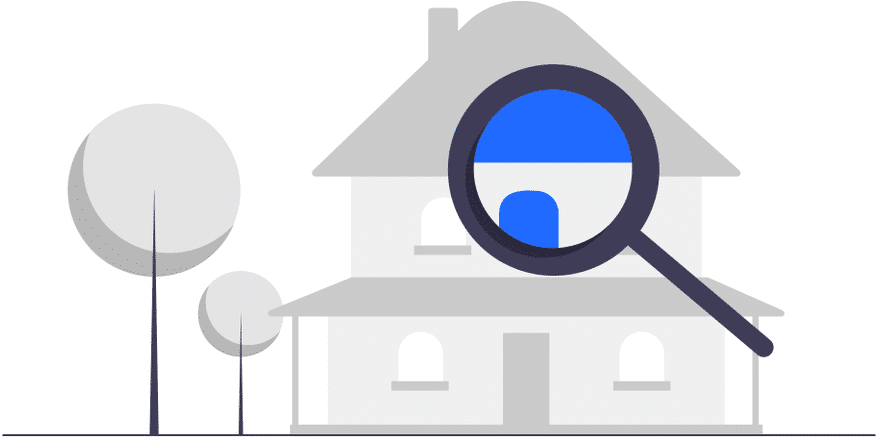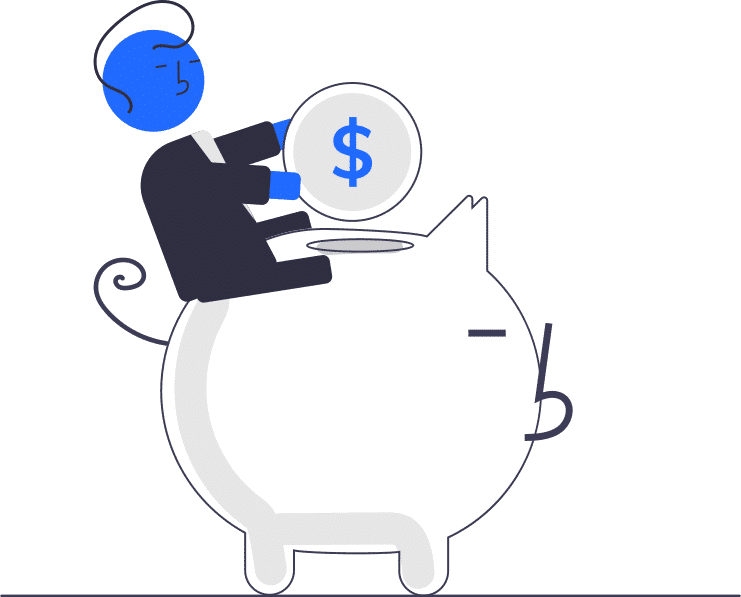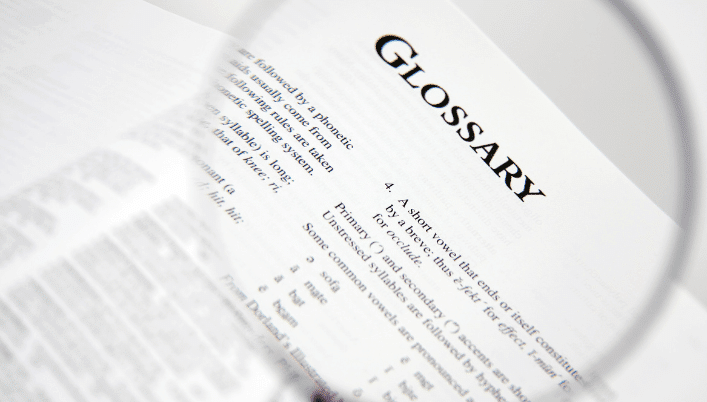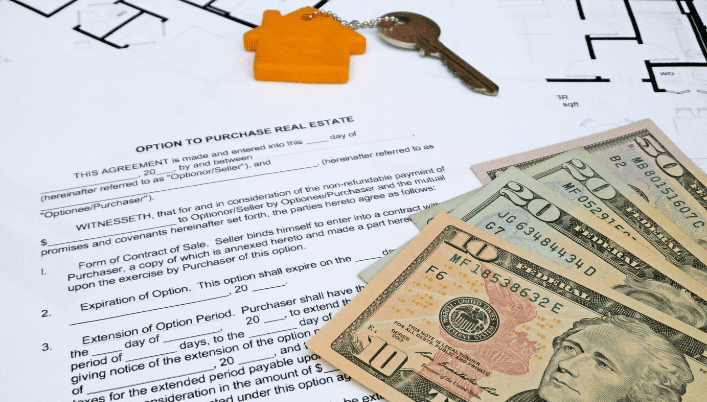
Singapore Property Market

What you’ll learn
Investing in Singapore property offers diverse options like condos, landed houses, and HDB flats. With a strong economy and stable infrastructure, it’s appealing. Key considerations include the Property Price Index, developers like CapitaLand, legal matters, cooling measures, and staying informed.
Buying A Property

What you’ll learn
In Singapore, property buyers can choose from HDB flats, new launch condos, resale condos, and landed homes. Each option has unique processes and considerations. Buyers should research, consider finances, and seek professional advice for informed decisions.
Selling A Property

What you’ll learn
Selling property in Singapore varies by type. HDB flats take 3-6 months, new launch condos involve agent contact, agreement signing, and fees, resale condos take 2-4 months, and selling landed homes requires agent engagement, valuation, marketing, and negotiation.
Renting A Property

What you’ll learn
Renting property in Singapore offers various options with different processes and timelines. HDB flats require eligibility checks and applications. New launch condos involve registration and viewings. Resale condos require negotiations. Landed homes involve agent engagement and viewings.
3 RESOURCES
Location

What you’ll learn
Welcome to Singapore, a captivating city-state in Southeast Asia. Explore the CBD, Chinatown, Marina Bay, and vibrant neighborhoods like Little India. Enjoy the efficient MRT system and excellent schools. Uncover the many facets of this remarkable city!
5 RESOURCES
Financing

What you’ll learn
Welcome to the world of finance! We’ll explore managing finances, including home loans, property calculators, taxes, decoupling, and the CPF. Let’s start this enlightening journey together!
6 RESOURCES
Real Estate Glossary Singapore

What is a Real Estate Glossary?
A Real Estate Glossary Singapore is a comprehensive list of terms and jargon used in the real estate industry.
It includes terminology related to Singapore real estate, real estate agency work, real estate professionals, properties, certificates, policies, pieces of property, and titles to properties.
This glossary is specifically tailored to the Singapore market to help individuals understand and navigate the complex world of real estate.
A real estate glossary is a comprehensive list of terms and definitions related to the real estate industry.
It serves as a guide for individuals who are buying, selling, or investing in property.
The glossary includes a wide range of terms, from the basic to the more complex, that are commonly used in real estate transactions.
Some key terms that are often found in a real estate glossary include:
- Period of time: The specific duration within which a particular action or process takes place.
- Personal property: Moveable assets that are not permanently attached or affixed to a real property.
- Real property: A piece of land and any structures or improvements on it.
- Sale price: The amount at which a property is sold.
- Time period: A specific duration or interval.
- Parcel of land: A specific piece or area of land defined by boundaries.
- Eminent Domain: The right of the government to take private property for public use, with adequate compensation to the owner.
- Monthly payments: Regular installment payments made on a loan or mortgage.
- Promissory note: A written agreement in which one party promises to pay a specific amount to another party.
- Investment property: A property purchased with the intent of generating a return on investment.
- Fair market: The price that a property would sell for on the open market.
- Purchase agreement: A binding contract that outlines the terms and conditions of a real estate transaction.
- Real estate property: Land and any structures or improvements on it.
- Subject property: The property that is the focus of a real estate transaction.
- Mortgage lender: The financial institution or individual that provides a loan for the purchase of real estate.
- Sales price: The final price at which a property is sold.
- Sale clause: A provision in a contract that outlines the terms of a sale.
- Lending institution: A bank or financial organization that provides loans to individuals or businesses.
- Real estate taxes: Taxes paid by property owners based on the value of their real estate.
- Real estate broker: A licensed professional who facilitates the buying and selling of real estate.
- Joint ownership: When two or more individuals share ownership of a property.
- Property taxes: Taxes paid by property owners to fund local government services.
- Mortgage agreement: A contract that outlines the terms of a mortgage loan.
- Mortgage loans: Loans secured by real estate.
- Mortgage brokers: Individuals or companies that facilitate the loan process between borrowers and lenders.
- Mortgage note: A legal document that outlines the terms and conditions of a mortgage.
- Operating income: The income generated from a property’s operations, such as rental income.
- Rental income: The income received from renting out a property.
- Adjustable rate mortgages: Mortgage loans with interest rates that can change over time.
- Binding contract: A legally enforceable agreement between two or more parties.
- Breach of contract: The failure to fulfill the obligations outlined in a contract.
- Replacement property: A property acquired in an exchange of real estate investment for tax purposes.
- INCOME APPROACH: A method of valuing real estate based on the income it generates.
- Certificate of title: A document that proves legal ownership of a property.
- Veterans Affairs: A government agency that provides various benefits and services to military veterans.
- Real estate investment: The purchase of property with the goal of generating income or appreciation.
- Commencement certificate: A document issued by the local authorities that allows construction to begin on a property.
Why is a Real Estate Glossary Important?
Understanding the jargon and terminology used in the real estate industry is crucial, especially in Singapore, where the market can be fast-paced and competitive.
Having a real estate glossary on hand allows you to communicate effectively with real estate agents, professionals, and other stakeholders involved in property transactions.
It ensures that you have a clear understanding of the terminology being used and can make informed decisions when buying, selling, or renting a property.
How to Use This Real Estate Glossary
This real estate glossary is designed to be user-friendly and easy to navigate.
Refer to the alphabetical listing of terms to find the definition and explanation of a specific term you are interested in.
Familiarize yourself with the terms that are commonly used in the Singapore real estate industry, such as policy, piece of property, and title to property.
By using this glossary, you can enhance your knowledge of real estate terminology and better understand the intricacies of the Singapore real estate market.
Whether you are a first-time homebuyer, an investor, or a seasoned property owner, having a solid understanding of real estate jargon will empower you to make well-informed decisions and navigate the buying and selling process more confidently.
In summary, a real estate glossary is an essential tool for anyone involved in the Singapore real estate market.
It helps you understand the unique terminology used in the industry and allows for effective communication with real estate professionals.
By using this glossary, you can navigate the complex world of real estate with confidence and make informed decisions when buying, selling, or renting a property.
Key Takeaways
-
A real estate glossary in Singapore contains terminology essential for navigating the real estate market, facilitating effective communication, and making informed decisions.
-
Understanding real estate jargon is vital, especially in a fast-paced and competitive market like Singapore. It ensures effective communication with professionals and informed decision-making in property transactions.
-
The glossary is user-friendly and alphabetically organized for easy reference. Familiarizing yourself with common terms such as policy, piece of property, and title to property can enhance your knowledge of the Singapore real estate market.
-
The HDB provides affordable housing in Singapore. It offers various types of flats, including studio apartments, 2-room flexi flats, 3-room flats, 4-room flats, 5-room flats, and executive apartments (EAs), catering to different housing needs and budgets.
-
To purchase an HDB flat, individuals must meet specific eligibility criteria, including being a Singapore Citizen (SC) or Singapore Permanent Resident (SPR), forming a family nucleus, adhering to income ceilings, not owning other properties, and fulfilling the Minimum Occupation Period (MOP).
-
Understanding stamp duty terms, such as Buyer’s Stamp Duty (BSD) and Additional Buyer’s Stamp Duty (ABSD), is essential when buying or selling property. BSD is a tax on buyers based on the property’s purchase price, while ABSD is an additional tax for specific categories of buyers.
-
Calculating BSD and ABSD involves multiplying the purchase price by the respective tax rate. These rates can vary depending on factors such as residency status, number of properties owned, and property type. Accurate calculations require professional advice and adherence to government policies.
-
An Option to Purchase (OTP) is a legal contract that grants potential buyers the exclusive right to purchase a property within a specified period. The OTP outlines key details like purchase price, option fee, and option period. Understanding OTP terms, exercising the option, and potential consequences is crucial in property transactions.
-
Distinguishing between freehold and leasehold property is vital. Freehold property offers indefinite ownership, while leasehold property involves leasing land for a specified period (e.g., 99 or 999 years). Buyers should consider the remaining lease term’s impact on property value.
-
Residential properties in Singapore are classified as landed (houses with land ownership) or non-landed (condominiums, apartments). Landed properties provide more control and space but come with a higher cost, while non-landed properties are more affordable and popular among young professionals and families.
-
The CPF Housing Grant assists first-time homebuyers in Singapore by providing financial support to offset property purchase costs. The grant amount depends on factors like income and aims to make housing more affordable and encourage homeownership. Understanding eligibility and application processes is crucial for potential beneficiaries.
HDB Glossary

What is HDB?
The Housing and Development Board (HDB) is the government body responsible for providing affordable housing in Singapore.
It was established in 1960 and has played a crucial role in Singapore’s nation-building process.
HDB flats are trendy among Singaporeans, as they offer quality, affordable housing options.
Central Provident Fund (CPF) is a mandatory social security savings scheme for Singaporeans.
It is used to fund various purposes, including the purchase of HDB flats.
Singaporeans can use their CPF savings to pay for the down payment and monthly mortgage payments of their HDB flats.
HDB flats can be classified into two categories: landed property and non-landed property.
Landed property refers to properties that come with a piece of land ownership, such as terrace houses, semi-detached houses, and bungalows.
Non-landed property refers to properties without land ownership, such as apartments and flats.
Types of HDB Flats
There are several types of HDB flats available in Singapore, catering to different housing needs and budgets.
Here are some common types:
- Studio Apartments (SAs): These flats are designed for elderly Singaporeans who want to live independently. They come with a smaller floor area and fewer rooms.
- 2-Room Flexi Flats: These flats cater to various groups, including young couples, enbloc, singles, and retirees. They can be customized to suit different needs and are available in leasehold and shorter-term options.
- 3-Room Flats: These flats are suitable for small families or couples who require more space. They typically consist of two bedrooms, a living room, a kitchen, and a bathroom.
- 4-Room Flats: These flats offer more space and are suitable for larger families. They usually consist of three bedrooms, a living room, a kitchen, and a bathroom.
- 5-Room Flats: These flats are designed for families requiring even more space. They typically consist of four bedrooms, a living room, a kitchen, and two bathrooms.
- Executive Apartments (EAs): These flats are more extensive than regular flats and offer more luxurious living spaces. They include additional features like a study room or utility room.
HDB Eligibility Criteria
To be eligible to purchase an HDB flat, there are specific criteria that individuals must meet:
- Singapore Citizen (SC) or Singapore Permanent Resident (SPR): Only SCs and SPRs are eligible to purchase an HDB flat.
- Family Nucleus: The applicant must form a family nucleus, which includes the applicant, spouse, parents, and children (if any). Specific schemes may have additional requirements, such as the Married Child Priority Scheme.
- Income Ceiling: The applicant’s average gross monthly household income must not exceed a specific limit, depending on the flat type and location.
- Ownership of other property: The applicant and spouse must not own other residential properties locally or overseas, and they must not have disposed of any within the last 30 months.
- Financial commitments: Applicants must not have any outstanding loans from HDB or financial institutions.
- Minimum Occupation Period (MOP): After purchasing an HDB flat, there is a minimum period of occupation before the flat can be sold or rented out.
It’s important to note that the eligibility criteria may differ for different HDB schemes and initiatives.
It’s advisable to check the latest information on the HDB website or seek professional advice when considering purchasing an HDB flat.
Overall, understanding the HDB glossary and familiarizing yourself with the different types of HDB flats and eligibility criteria is crucial when entering the Singapore real estate market.
It will help you make informed decisions and navigate the process with ease.
Stamp Duty Glossary

What is Buyer’s Stamp Duty (BSD)?
Buyer’s Stamp Duty (BSD) is a tax imposed on the buyer of a property in Singapore.
It is calculated based on the purchase price or market value of the property, whichever is higher.
The BSD rates range from 1% to 4% of the purchase price, depending on the value of the property and the buyer’s residency status.
What is Additional Buyer’s Stamp Duty (ABSD)?
Additional Buyer’s Stamp Duty (ABSD) is a tax levied on specific categories of property buyers in Singapore.
It is intended to cool the property market and discourage foreign investment. Private Property owners buy the property in maximum amount of Singapore dollar.
ABSD rates vary depending on the buyer’s residency status, the number of properties owned, and the type of property being purchased.
The rates can range from 0% to 25% of the purchase price.
How to Calculate Buyer’s Stamp Duty (BSD) and Additional Buyer’s Stamp Duty (ABSD)
Calculating Buyer’s Stamp Duty (BSD) and Additional Buyer’s Stamp Duty (ABSD) can be a complex process.
A government agency or a qualified professional usually does it. Residential units using their cpf to repay their housing loans, divided by the total gross monthly income.
However, if you want to have a rough estimate, you can use the following formula:
BSD = Purchase Price x BSD Rate
ABSD = Purchase Price x ABSD Rate
The BSD and ABSD rates can be found on the website of the Inland Revenue Authority of Singapore (IRAS).
It is important to note that the rates may be subject to change based on market conditions and government policies.
Additional factors, such as the existence of an acceleration clause, the reserve price, and the legal title of the property, may also affect the final calculation.
In conclusion, understanding the terms related to stamp duty in Singapore is essential for anyone involved in the property market.
The Buyer’s Stamp Duty (BSD) and Additional Buyer’s Stamp Duty (ABSD) are crucial factors to consider when buying or selling a property.
It is recommended to consult with a professional or the IRAS for accurate and up-to-date information on stamp duty rates and calculations.
Option to Purchase (OTP) Glossary

What is an Option to Purchase (OTP)?
In the world of real estate, an Option to Purchase (OTP) is a legal contract that grants a potential buyer the exclusive right to purchase a property from the owner within a specified period. HDB Flat owners must be paid the goods and services tax per square meter.
It is often used in property transactions in Singapore.
The OTP specifies essential details such as the purchase price, the option fee, and the option period.
During this period, the potential buyer has the opportunity to secure financing and conduct due diligence on the property.
If the buyer decides to exercise the option, they can proceed with the purchase and complete the necessary legal documents.
Typically, the buyer pays an option fee, which is a small percentage of the purchase price.
This fee is non-refundable and serves as a consideration for the seller to grant the option. Share in the property borrower’s tenancy also referred interest in the property.
It is important to note that the option fee is separate from the down payment or loan amount required to complete the purchase.
During the option period, the property may be under an exclusive agency agreement, where the seller cannot market or sell the property to other potential buyers.
This provides the buyer with a level of security and peace of mind, knowing that they have exclusive rights to the property during the option period.
To protect the buyer’s interest, it is common for parties involved in an OTP transaction to obtain a title insurance policy.
This policy helps protect against any potential defects in the title of the property, ensuring a smooth transfer of ownership.
In the event that either party breaches the OTP contract, such as the buyer failing to exercise the option or the seller refusing to sell the property, legal consequences may arise.
It is essential to understand the terms and conditions set out in the OTP and seek legal advice if necessary.
Additionally, OTPs are not eligible for financing from Fannie Mae or Freddie Mac, two government-sponsored enterprises that provide liquidity to the mortgage market.
This means that buyers relying on loans from these institutions may need alternative financing options.
If the buyer decides not to exercise the OTP, they may forfeit the option fee.
However, they are free to search for other properties and potentially enter into a new OTP for a different property of their choice.
How to Exercise an Option to Purchase (OTP)
When a buyer decides to exercise an OTP, they must notify the seller within the specified option period.
This is typically done in writing, indicating their intent to proceed with the purchase.
Upon exercising the OTP, both parties will need to engage an escrow agent or a lawyer to facilitate the closing process.
The buyer will need to arrange for financing, if applicable, and the necessary legal documents will be prepared to complete the transfer of ownership.
What Happens if I Don’t Exercise an Option to Purchase (OTP)?
If the buyer does not exercise the OTP within the specified option period, the contract expires, and the buyer forfeits the option fee.
They are then free to explore other property options and potentially enter into a new OTP for a different property.
It is essential to be aware of the terms and conditions, as well as the implications of not exercising an OTP, to make informed decisions in real estate transactions.
Overall, an Option to Purchase (OTP) is a valuable tool in real estate transactions, providing buyers with exclusive rights and flexibility during the option period.
It is essential to understand the terms and conditions, seek legal advice if needed, and make informed decisions when engaging in OTP transactions.
Other Important Real Estate Terms in Singapore

Freehold vs Leasehold Property
When it comes to purchasing property in Singapore, it’s essential to understand the difference between freehold and leasehold.
Freehold property refers to ownership of land in perpetuity.
It means that the owner has full rights and control over the property indefinitely.
On the other hand, leasehold property means that the government or a landlord owns the land, and the buyer is essentially leasing the ground for a certain period, typically for 99 or 999 years.
Before purchasing a leasehold property, it’s crucial to verify the remaining lease term and consider the implications for the property’s value over time.
Landed Property vs Non-Landed Property
In Singapore, residential properties are classified into two categories – landed property and non-landed property.
Landed property includes houses or bungalows with their plots of land.
Owners of landed property enjoy exclusive ownership of the land and have more freedom to modify or expand their homes.
Landed properties are highly sought after but tend to come with a higher price tag.
Non-landed property, on the other hand, includes condominiums, apartments, and flats.
These properties do not come with individual plots of land, but owners have access to shared facilities such as swimming pools, gyms, and park areas.
Non-landed properties are more affordable and popular among young professionals and families.
Central Provident Fund (CPF) Housing Grant
The Central Provident Fund (CPF) is a comprehensive social security savings plan for Singaporeans.
The CPF Housing Grant is a scheme that provides financial assistance to first-time homebuyers to offset the cost of purchasing a property.
The amount of the grant depends on various factors, including the buyer’s income, monthly income, and taxable income.
The grant aims to make housing more affordable for Singaporeans and encourage homeownership.
Potential buyers need to understand the eligibility criteria and application process to take advantage of the CPF Housing Grant.
Understanding these real estate terms is essential when navigating the property market in Singapore.
Whether you are considering purchasing a freehold or leasehold property, understanding the distinction between landed and non-landed property, or exploring eligibility for the CPF Housing Grant, having a grasp of these terms will help you make informed decisions in your real estate journey.
Remember, consulting with a professional real estate agent or lawyer can provide further guidance and ensure a smooth transaction.
Conclusion
In conclusion, having a solid understanding of the real estate glossary in Singapore is crucial for both buyers and sellers in the property market.
The terminology and critical concepts discussed in this article can help individuals navigate through the complex process of property valuation, purchase, and ownership.
Whether you are a Singaporean citizen looking to buy a property or a foreign investor interested in the Singapore market, knowing the keywords such as valuation of your property, property price, benchmark, private residential, en-bloc, option to purchase a property, letter of offer, LTV ratio, home protection scheme, SIBOR, lock-in period, and CPF can make a significant difference in your decision-making process.
Understanding the various terms and regulations surrounding property ownership, such as the cash and CPF payable, HDB’s Sale of Balance Flats, CPF Ordinary Account, Board Rate, and mortgage insurance, is essential to ensure a smooth transaction and avoid any surprises along the way.
It is also essential to be familiar with standard terms used in the housing market, such as detached houses, cluster housing, multi-level apartment blocks, shared facilities, and common areas, as these can impact the overall value and desirability of a property.
Lastly, engaging the services of a professional valuer can provide valuable insights into the property’s worth and ensure that you are making informed decisions based on accurate information.
In conclusion, the real estate glossary in Singapore is a comprehensive guide for anyone looking to navigate the property market effectively.
By familiarizing yourself with the key terms and concepts, you can make better-informed decisions and avoid potential pitfalls throughout your property journey.
Frequently Asked Questions
What is the definition of stratum?
Stratum refers to the individual level or layer of a building or property, typically used in the context of vertical division of ownership in apartments.
What does resale mean in real estate?
In real estate, resale refers to the sale of a property that has been previously owned, as opposed to a brand new property.
What is a private property?
A private property refers to a residential property that is owned by an individual or a corporation, as opposed to public housing, which is government-owned and subsidized.
What is a home loan?
A home loan, also known as a mortgage, is a loan obtained from a financial institution to finance the purchase of a property.
What is valuation in real estate?
Valuation in real estate refers to the process of determining the market value of a property, taking into account factors such as location, size, condition, and demand.
What is the Monetary Authority of Singapore?
The Monetary Authority of Singapore (MAS) is the central bank of Singapore, responsible for regulating and supervising various financial institutions, including banks, insurers, and money changers.
What is a Temporary Occupation Permit (TOP)?
A Temporary Occupation Permit (TOP) is a permit issued by the Commissioner of Building Control that allows the occupant to use and occupy a building temporarily before the completion of all construction works.
What is the selling price of a property?
The selling price of a property refers to the actual price at which the property is sold to a buyer.
Who is the Commissioner of Building Control?
The Commissioner of Building Control is a regulatory authority in Singapore responsible for ensuring compliance with building regulations and issuing permits related to construction and occupancy.
What is a Certificate of Statutory Completion (CSC)?
A Certificate of Statutory Completion (CSC) is a legal document issued by the Commissioner of Building Control once a building is completed and deemed to have met all the requirements under the Building Control Act.

